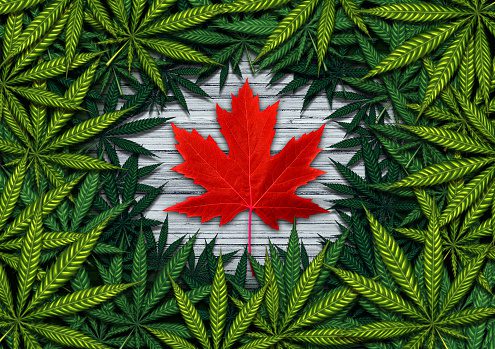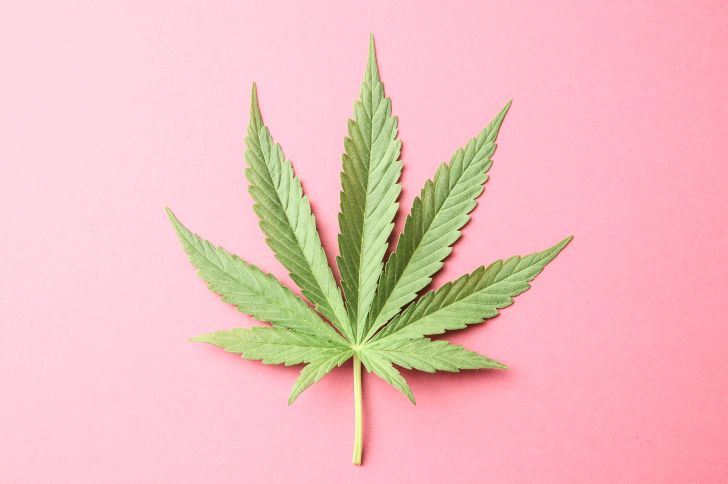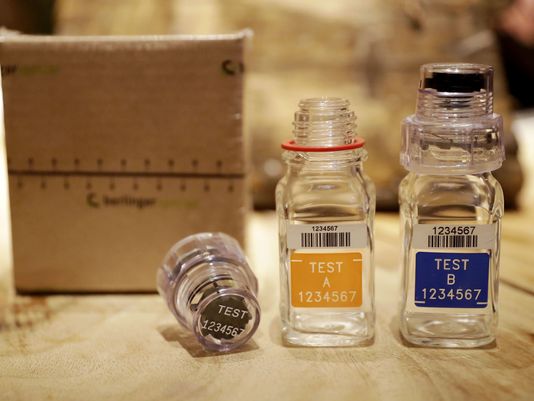Study says 1 in 4 athletes used cannabis within the past year
The drug is prohibited in competition, but it appears some athletes are still celebrating 4/20

Cannabis was legalized for recreational use in Canada in 2018, and since then, many states in the U.S. have followed suit. Despite this, it has remained on the World Anti-Doping (WADA) prohibited list, even after a group of athletes petitioned to have it removed from the list in 2019. But has this stopped athletes from using it altogether? According to a 2020 review, no. In fact, after examining several studies reporting use among athletes, the researchers found that approximately 23.4 per cent of athletes had used cannabis in the previous 12 months.

RELATED: New study confirms endorphins aren’t the cause of runner’s high
The review, which was published by the American Orthopedic Society for Sports Medicine (AOSSM) in February 2020, included 37 studies, the majority of which were cross-sectional studies of elite and university athletes. Of those 37 studies, 11 focused purely on reporting cannabis use among athletes, and found that more than 23 per cent of high-level athletes had used cannabis at some point over the past year. Two of the examined studies found the drug had a negative impact on athletic performance, while another two found it had no impact. No research is available on the influence of cannabis on athletic recovery.
Why is cannabis still prohibited in sport?
If the studies in this review found that cannabis had either no effect at all, or even a negative effect on athletic performance, why is the drug still banned by WADA? In order for a substance to be prohibited, it must meet at least two of the following criteria:
- Be performance-enhancing;
- Potentially a health risk;
- Against the spirit of sport.
The first two criteria are fairly straightforward (although, as we see with cannabis, determining whether a substance is performance-enhancing isn’t always easy), but if you’re like most people, the third one probably has you scratching your head. WADA defines “the spirit of sport” by the following values:
- Ethics, fair play and honesty
- Health
- Excellence in performance
- Character and education
- Fun and joy
- Teamwork
- Dedication and commitment
- Respect for rules and laws
- Respect for self and other Participants
- Courage
- Community and solidarity
Reportedly, cannabis is banned from sport because it violates all three criteria, although there is very little (if any) evidence to suggest cannabis use enhances performance. The Canadian Centre for Ethics in Sport (CCES) includes the following statement on their Cannabis FAQ page:
“While the CCES does not view cannabis as particularly performance-enhancing, we do have anecdotal accounts of athletes using it therapeutically with the intent to improve performance or recovery by managing pain, stress, or anxiety.”
The organization adds that habitual use or abuse of the drug does have the potential to cause harm, and use during competition presents a liability to the safety of the athlete and their competitors, violating the second criterion. As for the third, the CCES should compete clean, clear and sober in order to demonstrate respect for their teammates, their opponents and their sport.

The fine print
The drug’s position on the prohibited list doesn’t mean that athletes can’t use it at all. It is only banned during competition, so anyone who wishes to use cannabis can do so in the off-season. The problem with this is that cannabis is fat-soluble, which means different strains can be stored in your body for a long time, and if athletes aren’t careful, it could still show up on a drug test if taken too close to competition.
The rule prohibiting cannabis is also not all-or-nothing. Under the WADA regulations, cannabis is considered a threshold substance, which means that if cannabinoids are detected in an athlete’s sample below a specific concentration, it will not be reported and they won’t get in trouble for it. Still, the CCES says that positive tests for cannabis are frequent.
Finally, CDB oil is not on the WADA prohibited list, however since CBD oil can still contain some concentration of THC, the CCES advises athletes to use it at their own risk.
RELATED: Fancy Bear hacks WADA and other anti-doping organizations


